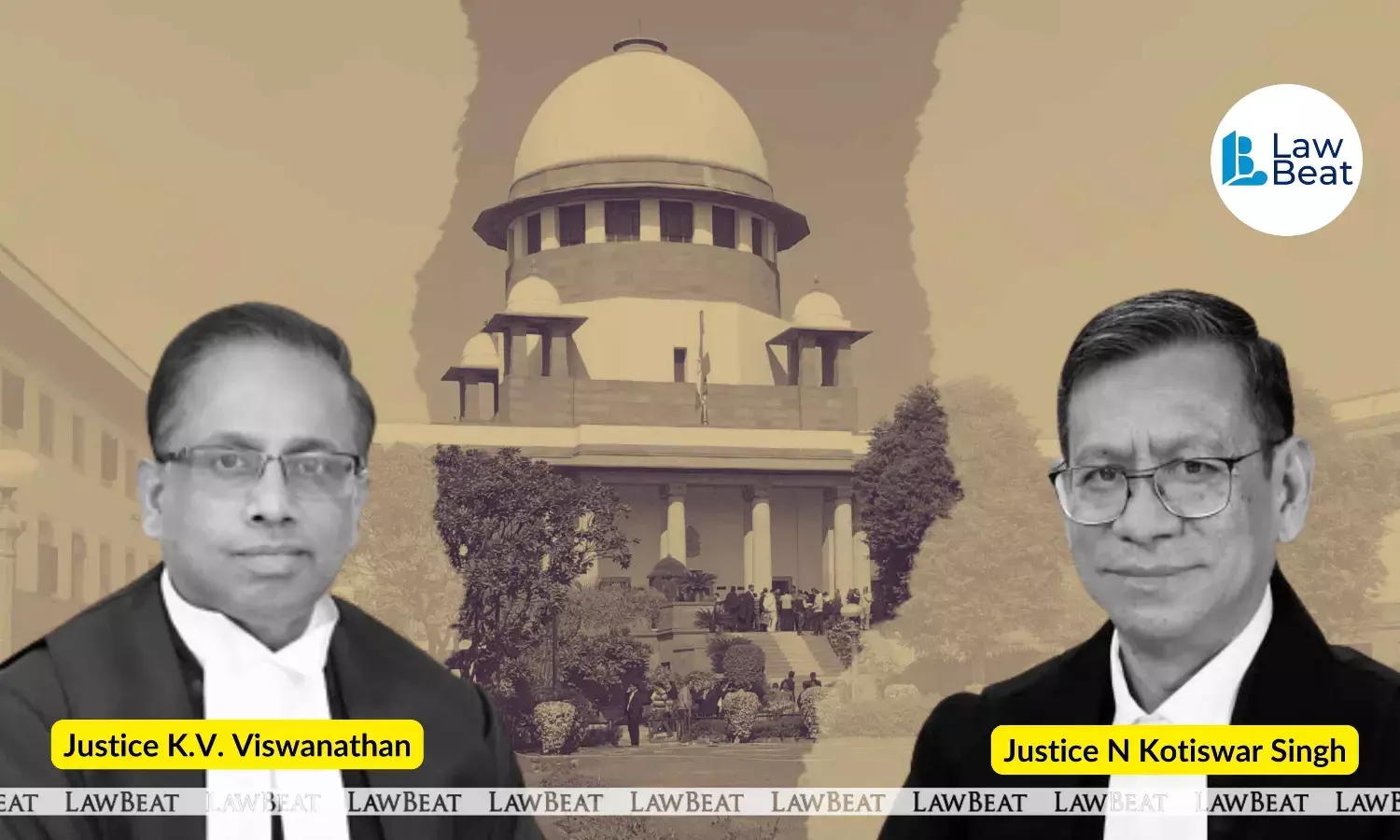Police Summons to Defence Lawyers a Threat to Judicial Independence: Supreme Court

The Supreme Court on June 25, 2025, said permitting the investigating agencies or prosecuting agency or police to directly summon defence counsel or advocates, who advice parties in a given case would seriously undermine the autonomy of the legal provision and would even constitute a direct threat to the independence of the administration of justice.
A bench of Justices K V Vishwanathan and N Kotiswar Singh said the legal profession is an integral component of the process of administration of justice.
"Counsel, who are engaged in their legal practice apart from their fundamental rights under Article 19(1)(g) of the Constitution of India, have certain rights and privileges guaranteed because of the fact that they are legal professionals and also due to statutory provisions like Section 132 of Bharatiya Sakshya Adhiniyam (BSA)," the bench said.
Court was hearing a plea by Ashwinkumar Govindbhai Prajapati, an advocate who challenged the Gujarat High Court's order of June 12, 2025, which declined to quash the notice issued to him by Ahmedabad police in a criminal case related to dispute over a loan transaction.
The court felt that this was a case where notice needed to be issued to the Attorney General for India, Solicitor General of India, the Chairman, Bar Council of India and for the time being to the President/Executive Committee of the Supreme Court Bar Association and to the President/Executive Committee of the Supreme Court Advocates-on-Record Association to assist the court in addressing this important question.
The bench framed legal questions when an individual has the association with a case only as a lawyer advising the party, could the investigating agency or prosecuting agency or police directly summon the lawyer for questioning? Assuming that the investigating agency or prosecuting agency or police has a case that the role of the individual is not merely as a lawyer but something more, even then should they be directly permitted to summon or should judicial oversight be prescribed for those exceptional criterion of cases?
"Both these issues and such other issues as may arise would have to be addressed on a comprehensive basis because what is at stake is the efficacy of the administration of justice and the capacity of the lawyers to conscientiously and fearlessly discharge their professional duties. This is a matter directly impinging on the administration of justice. Hence, subjecting the counsel in a case to the beck and call of the Investigating Agency/Prosecuting Agency/Police prima facie appears to be completely untenable," the bench said.
The court directed for placing the papers before the Chief Justice of India for passing such directions as he may deem appropriate.
The bench observed that the special leave petition at hand raised a question of grave public importance. The question was whether at all and if so, under what circumstances can the investigating agencies directly issue summons to question a counsel who is appearing for a party in a given case, the bench said.
In the present case, on March 24, 2025, a notice was served on the petitioner under Section 179 of the Bhartiya Nagrik Suraksha Sanhita, 2023. The said notice set out the FIR details and stated that to know the true details of facts and circumstances, the petitioner was asked to appear at the office of D R Patel, Assistant Commissioner of Police, SC/ST Cell - 2, Ahmedabad City within three days from the date of receipt of the notice.
Upon the petitioner's challenge, the high court held that since the summon had been served under Section 179 of BNSS in the capacity of witness and the authorities had power to investigate, there was no violation of fundamental rights of the petitioner.
Senior advocate Siddharth Dave, appearing for the petitioner, contended that the petitioner was neither an accused nor a witness and was only discharging his role as an advocate of the accused in the said case. The FIR pertained to a dispute between the complainant and the accused, and the petitioner had no connection beyond his role as a lawyer for the accused, he said.
According to the counsel, communications between an advocate and a client which are privileged under Section 132 of the Bhartiya Sakshya Adhiniyam, 2023 (corresponding to Section 126 of the Indian Evidence Act, 1872) cannot be subject-matter of any enquiry under 179 or under any other provisions of BNSS.
He also submitted that the advocates are bound by professional duty to maintain the confidentiality of client communication and advice provided to the client. He said that permitting the investigating agencies or prosecuting agency or police to summon advocates who are engaged as counsel in the case or who have advised parties impinge upon the rights of the advocates apart from seriously threatening the autonomy of the legal profession.
"Prima facie, we find merit in the said submission," the Supreme Court said.
As far as the present matter is concerned, the court ordered that till further orders, the respondent State shall be restrained from summoning the petitioner.
"There shall be stay of operation of the notice dated 24.03.2025 or such other subsequent notices that may have been issued to the petitioner," the bench ordered.
Case Title: Ashwinkumar Govindbhai Prajapati Vs State of Gujarat & Ors
Download judgment here
